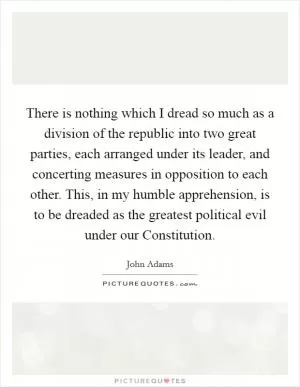A government of laws, and not of men

A government of laws, and not of men
John Adams, the second President of the United States, was a firm believer in the concept of a government of laws, and not of men. This principle, which he famously articulated in his defense of British soldiers accused of murder during the Boston Massacre, reflects his commitment to the rule of law and the idea that no individual, regardless of their position or power, is above the law.Adams understood that a government of laws was essential to the preservation of liberty and the protection of individual rights. He believed that the rule of law provided a framework for the fair and impartial administration of justice, ensuring that all citizens were treated equally under the law. By establishing clear rules and procedures for the conduct of government officials and citizens alike, Adams sought to prevent the arbitrary exercise of power and protect against the tyranny of a single individual or group.
Adams' commitment to the rule of law was evident throughout his political career. As a delegate to the Continental Congress, he played a key role in drafting the Declaration of Independence and later served as a diplomat in Europe, negotiating treaties and representing the interests of the newly formed United States. As Vice President under George Washington, Adams presided over the Senate and worked to uphold the principles of the Constitution.
When Adams became President in 1797, he faced numerous challenges, including threats of war with France and internal divisions within his own party. Throughout his presidency, Adams remained steadfast in his commitment to the rule of law, even when it meant making unpopular decisions or facing criticism from his political opponents. In his efforts to uphold the principles of the Constitution and defend the rights of individuals, Adams demonstrated his belief in the importance of a government of laws, and not of men.












 Friendship Quotes
Friendship Quotes Love Quotes
Love Quotes Life Quotes
Life Quotes Funny Quotes
Funny Quotes Motivational Quotes
Motivational Quotes Inspirational Quotes
Inspirational Quotes